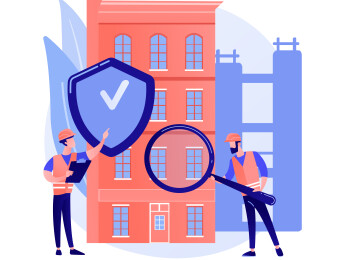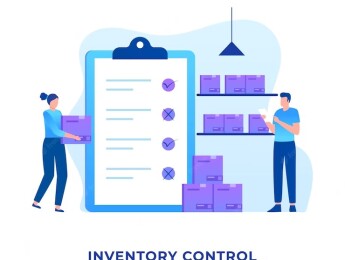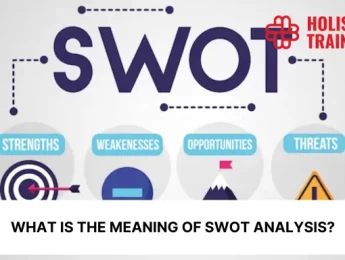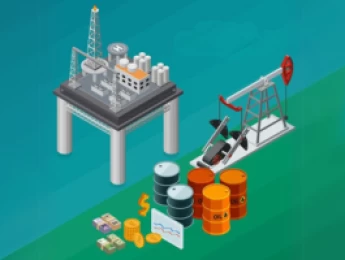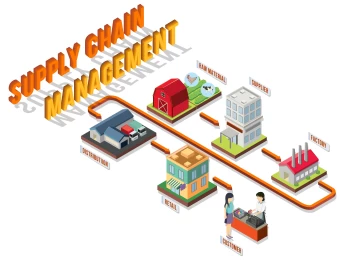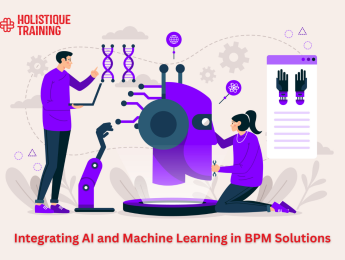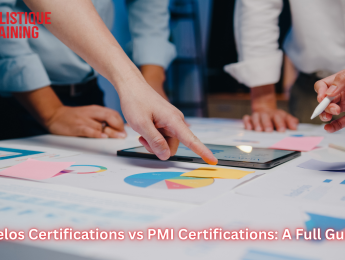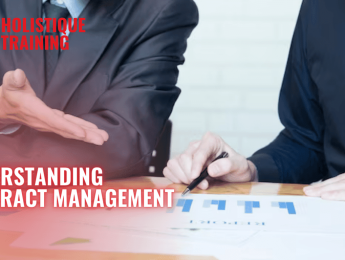- Table of Contents
- Introduction
- What Is Facility Management?
- Facility Management Categories
- 1. Operations and Maintenance
- 2. Space and Workplace Management
- 3. Asset Management
- 4. Sustainability and Environmental Management
- 5. Project Management
- The Role of Facility Managers
- 1. Strategic Planning
- 2. Budgeting and Financial Management
- 3. Risk Management
- 4. Vendor and Contract Management
- 5. Stakeholder Communication
- Top Facility Management Skills in 2023
- Technical Proficiency
- Leadership and Communication
- Problem-Solving and Decision-Making
- Project Management
- Sustainability and Energy Management
- Financial Acumen
- Flexibility and Adaptability
- The Future of Facility Management
- IoT Integration
- Smart Building Solutions
- Virtual Reality (VR) for Facility Planning
- Sustainable Practices
- Artificial Intelligence (AI) in Facility Management
- CMMS Software
- Augmented Reality (AR) for Maintenance
- Conclusion
Introduction
Effective facility management plays a crucial role in ensuring the smooth functioning of organisations across various industries. As businesses continue to grow and expand, the need for efficient management of physical spaces, resources, and services becomes increasingly vital. In this blog post, we will delve into the world of facility management, exploring its definition, categories, the role of facility managers, and the top skills required for success in this field in 2023.
What Is Facility Management?
Facility management refers to the integrated management of physical assets, infrastructure, and services that support an organisation's core operations. It encompasses a wide range of activities to maintain and enhance a facility's functionality, safety, and efficiency. In today's dynamic business landscape, facility management holds paramount importance in ensuring the seamless functioning of organisations, and it is growing rapidly. In fact, its market currently boasts a valuation of $1,260.36 billion, which is projected to reach a substantial $1,856.44 billion by the year 2029, according to Visito. So, if you’re currently a facility manager, you’re in luck.
Facility Management Categories
Facility management is a multifaceted discipline encompassing various categories, each indispensable in the intricate dance of organisational efficiency and effectiveness.
1. Operations and Maintenance
Operations and maintenance represent the heartbeat of any facility. It involves meticulously managing daily tasks that keep the facility running seamlessly. Facility managers in this category juggle many responsibilities, from coordinating repairs to overseeing routine maintenance schedules. The importance of this category cannot be overstated; a well-maintained facility ensures safety, reduces downtime, and significantly impacts the longevity of equipment and structures. This involves fixing what's broken and taking proactive measures to prevent issues and ensure a smooth operational flow that is invisible to the occupants but pivotal for the organisation's core operations.
2. Space and Workplace Management
Space and workplace management delves into the art and science of optimising the physical environment. Facility managers in this category are akin to architects of productivity, reshaping spaces to foster collaboration, creativity, and comfort. They transform mere rooms into vibrant, engaging environments through strategic planning and innovative designs. They consider factors like lighting, acoustics, and ergonomics to curate spaces that not only look aesthetically pleasing but also contribute significantly to employees' mental and physical well-being. A well-designed workspace is not just visually appealing; it becomes a catalyst for enhanced creativity and productivity, empowering employees to do their best work.
3. Asset Management
Asset management involves a strategic approach to handling an organisation's physical assets. Facility managers under this category are akin to financial advisors, ensuring that every piece of equipment, machinery, or technology operates at peak efficiency. They assess the lifespan of assets, plan for replacements or upgrades, and implement maintenance protocols to extend usability. The art here lies in managing the assets themselves and aligning their functionality with the organisation's goals. This strategic approach ensures that resources are utilised optimally, reducing unnecessary expenses and minimising waste, thereby enhancing the organisation's overall profitability.
4. Sustainability and Environmental Management
Sustainability and environmental management are the ethical compass of modern facility management. In an era where environmental consciousness is paramount, facility managers in this category lead the charge towards greener, more responsible practices. They implement energy-efficient measures, harness renewable energy sources, and champion waste reduction strategies. Additionally, they ensure that the facility complies with environmental regulations and certifications, aligning the organisation with global sustainability goals. Beyond mere compliance, these managers spearhead initiatives that go above and beyond, showcasing the organisation's commitment to environmental stewardship. By reducing the ecological footprint, they contribute to a healthier planet and bolster the organisation's reputation and brand value.
5. Project Management
Project management in facility management involves a unique blend of creativity, technical acumen, and organisational finesse. Facility managers in this category are akin to conductors, orchestrating a symphony of architects, contractors, and various stakeholders. They ensure that construction and renovation projects align perfectly with the organisation's vision and mission. The challenges here are multifaceted, from budget constraints to tight deadlines. Project managers in facility management must navigate these challenges expertly, ensuring that every project is completed and embodies excellence. Successful projects are not just about bricks and mortar; they represent the organisation's commitment to growth, innovation, and continuous improvement.
In each category, facility managers act as architects of functionality, weaving diverse elements into a harmonious whole. Their expertise and strategic vision transform spaces into vibrant productivity hubs, ensuring that organisations survive and thrive in the ever-evolving tapestry of modern business. The ability to seamlessly blend technical expertise, creativity, and organisational prowess makes facility managers indispensable assets, guiding organisations towards success, one well-managed space at a time.
The Role of Facility Managers
Facility managers assume diverse responsibilities, which may vary depending on the organisation's size and industry. Their primary roles include:
1. Strategic Planning
Facility managers are visionaries, aligning the nitty-gritty of facility operations with the grandeur of organisational goals. Their strategic planning prowess involves a deep understanding of both the present challenges and the future aspirations. Integrating facility management strategies into the overarching business plan ensures that every operational decision resonates with the organisation's mission. This alignment is pivotal; it transforms facilities from mere structures into instruments of progress, each corridor and corner echoing the organisation's vision.
2. Budgeting and Financial Management
Financial acumen is a facility manager’s sharpest tool. They are entrusted with managing budgets, forecasting expenses, and identifying cost-saving opportunities. Their mastery over financial intricacies enables them to optimise resource allocation. Every dollar saved is a dollar invested wisely, whether it's in upgrading facilities, implementing sustainable practices, or nurturing employee well-being. Through astute financial management, they transform constraints into opportunities, ensuring the organisation operates efficiently even within budgetary confines.
3. Risk Management
Facility managers are adept navigators, steering their organisations through the stormy seas of risk. They assess potential risks related to facility operations, safety, and compliance. This keen risk evaluation allows them to implement strategies that minimise disruptions. Their role here is not just about foreseeing problems but proactively implementing measures to prevent them. Doing so creates an environment where employees can work without worry and be confident that their safety and well-being are paramount.
4. Vendor and Contract Management
Collaboration is key in modern business landscapes, and facility managers are the architects of collaborative excellence. They manage relationships with external service providers, negotiating contracts that ensure quality services. Ensuring compliance with agreed-upon service level agreements, they foster an atmosphere of mutual respect and efficiency. Through effective vendor and contract management, they create a network of reliable partners, each contributing uniquely to the organisation's success.
5. Stakeholder Communication
Facility managers are the bridges of effective communication. They connect various stakeholders - from employees to management, and external partners. Their role as communicators is not merely conveying messages but fostering a culture of openness and understanding. Ensuring everyone is on the same page prevents misunderstandings, aligns efforts, and enhances overall organisational synergy. Their ability to facilitate effective dialogue is akin to weaving the threads of a tapestry, creating a unified picture of organisational objectives.
In essence, facility managers are the silent conductors of organisational harmony. Their ability to balance strategic foresight, financial acumen, risk management, vendor collaboration, and stakeholder communication separates a smoothly operating organisation from a chaotic one. They are not just managers but architects of efficiency, crafting spaces and operations that resonate with the organisation's essence. In a world where the only constant is change, facility managers stand as stalwarts, ensuring that amidst the flux, the organisation's core functions with unwavering stability.
KPI | Description | Impact |
Occupancy Rate | Percentage of space being utilised effectively | Maximises space utilisation, cost efficiency |
Maintenance Downtime | Total time equipment or systems are non-operational | Minimises disruptions enhance productivity |
Energy Efficiency Ratio (EER) | The ratio of energy output to energy input | Reduces energy consumption, cost savings |
Work Order Completion Time | Time taken to complete maintenance tasks | Enhances efficiency, reduces downtime |
Customer Satisfaction Index | The measure of occupants' contentment with facilities | Reflects facility quality, user experience |
Table 1: Key performance indicators in facility management
Top Facility Management Skills in 2023
In 2023, facility managers will require a diverse skill set to tackle the evolving challenges of their roles. Here are the top skills that are essential for success in facility management:
Technical Proficiency
Facility managers in 2023 must possess profound technical expertise. Understanding intricate building systems, technology infrastructures, and maintenance processes isn’t merely a bonus; it’s a prerequisite. In an era where facilities are becoming technologically advanced, deciphering complex systems is indispensable. This proficiency empowers facility managers to make informed decisions, diagnose issues accurately, and implement cutting-edge solutions, ensuring the uninterrupted operation of essential services.
Leadership and Communication
Leadership and communication skills are the pillars upon which successful facility managers build their empires. Effective leaders inspire, motivate, and lead by example. They nurture a positive work environment, fostering teamwork, innovation, and employee engagement. Clear communication, both verbal and written, is equally paramount. Facility managers must convey complex ideas in a manner that is easily understandable to various stakeholders. Whether it's articulating the intricacies of a new project or addressing concerns during crises, adept communication ensures that everyone is on the same page, promoting harmony and understanding within the organisation.
Problem-Solving and Decision-Making
Facility managers are the problem solvers of the corporate world. They encounter various challenges daily, from equipment malfunctions to unforeseen emergencies. The ability to analyse situations, think critically, and devise innovative solutions is non-negotiable. Moreover, this problem-solving prowess must be coupled with sound decision-making. Facility managers are entrusted with decisions that impact the efficiency and safety of the facility. The capability to make swift, well-informed decisions, even under pressure, is a testament to their strategic acumen. Each decision ripples through the organisation, influencing its trajectory, making this skill a linchpin in the facility manager's toolkit.
Project Management
Project management is an enduring cornerstone of facility management. Facility managers are frequently involved in diverse projects, from renovations to technology integrations. Proficiency in project management ensures these initiatives are executed flawlessly. From meticulous planning to effective execution and timely completion, facility managers orchestrate the entire process. Their ability to balance budgets, manage resources, and keep projects on schedule is a testament to their organisational prowess. In 2023, project management skills will be invaluable when efficiency and timeliness are paramount.
Sustainability and Energy Management
Sustainability is not just a buzzword; it’s a guiding principle of modern facility management. Facility managers must be well-versed in sustainable practices, energy-efficient technologies, and environmental compliance. They champion initiatives to reduce the facility’s carbon footprint, implementing energy-efficient lighting, waste reduction strategies, and renewable energy sources. Being updated with the latest trends and technologies in sustainability is crucial. Moreover, facility managers must understand the financial implications of these initiatives. Balancing eco-friendly practices with financial prudence showcases their holistic understanding of facility management.
Financial Acumen
Financial acumen is the bedrock upon which effective facility management strategies are built. Facility managers must deeply understand budgeting, forecasting, and cost analysis. They identify cost-saving opportunities without compromising on quality or safety. Whether it’s negotiating contracts or evaluating the financial viability of a new project, their financial acumen ensures optimal resource allocation. This skill is pivotal in ensuring that the organisation operates efficiently and thrives financially, maximising every dollar invested.
Flexibility and Adaptability
The only constant in facility management is change. Unexpected challenges, evolving technologies, and shifting priorities are par for the course. Facility managers must be highly adaptable and capable of pivoting swiftly in response to new developments. Their resilience in the face of ambiguity ensures that operations continue seamlessly, regardless of external disruptions. Adaptability isn’t just about reacting to change; it’s about proactively embracing innovation and staying ahead of the curve. In 2023, when technological advancements are rapid, this skill differentiates exceptional facility managers from the rest.
In essence, the role of a facility manager in 2023 is akin to that of a master conductor. They harmonise technical expertise, leadership, strategic thinking, sustainability, financial acumen, and adaptability into a symphony of efficiency. As organisations evolve and redefine success, facility managers, equipped with these indispensable skills, stand at the forefront, steering their organisations towards excellence in a dynamic, ever-changing world.
The Future of Facility Management
The future of facility management is not just a continuation of current practices; it's a revolution fueled by technological advancements and innovative approaches. Here are the trends and innovations shaping the future of facility management:
IoT Integration
Internet of Things (IoT) integration has emerged as a game-changer in facility management. Facility managers gain real-time insights into various systems by embedding sensors and smart devices within the facility infrastructure. IoT devices provide a wealth of data, whether it’s monitoring energy usage, HVAC systems, or occupancy patterns. This data-driven approach empowers facility managers to make informed decisions, optimise resource usage, and predict maintenance needs accurately. IoT integration transforms facilities from static structures to intelligent, responsive entities, ensuring efficiency and sustainability in real-time.
Smart Building Solutions
Smart building solutions powered by artificial intelligence and automation redefine how facilities operate. Intelligent HVAC systems adjust temperature and ventilation based on occupancy, optimising energy usage without compromising comfort. Occupancy sensors and smart lighting systems ensure that lights are only on when needed, reducing electricity wastage. Predictive maintenance algorithms analyse data to foresee equipment failures, allowing facility managers to conduct repairs before breakdowns occur. These solutions enhance operational efficiency and contribute significantly to cost reduction and sustainability, making them indispensable tools for the facility managers of tomorrow.
Virtual Reality (VR) for Facility Planning
Virtual Reality (VR) has transcended the realm of gaming and entertainment to become a powerful tool in facility planning. Facility managers use VR technology to visualise spaces, experiment with layouts, and identify potential challenges before implementation. They can test different designs and configurations through immersive simulations, ensuring optimal space utilisation and user experience. VR technology allows facility managers to step into a virtual version of their facilities, foreseeing and addressing issues before construction or renovation begins. This innovative approach saves time and resources and guarantees that the final result aligns perfectly with the organisation's vision and objectives.
Sustainable Practices
In the future, sustainable practices won’t be a choice; they will be a fundamental aspect of facility management. Sustainability goes beyond energy-efficient lighting and recycling programmes. It involves comprehensive strategies to reduce the facility's ecological footprint. Facility managers will explore renewable energy sources, invest in green infrastructure, and implement circular economy practices. Additionally, they will prioritise sourcing eco-friendly materials, reducing water consumption, and promoting biodiversity within the facility premises. Sustainability will not just be a checkbox for compliance but a testament to an organisation's ethical responsibility towards the environment and society.
Artificial Intelligence (AI) in Facility Management
Artificial Intelligence (AI) is revolutionising how facilities are managed. AI algorithms analyse vast amounts of data to identify patterns, predict trends, and foresee potential issues. For instance, AI can predict occupancy patterns, allowing HVAC systems to adjust accordingly, minimising energy wastage. AI-driven predictive maintenance algorithms analyse equipment data to forecast maintenance needs, preventing unexpected breakdowns. Moreover, AI-powered chatbots and virtual assistants enhance the facility user experience, providing instant solutions to queries and issues. AI is not just a tool; it’s a strategic partner, enabling facility managers to operate proactively, foresee challenges, and ensure seamless operations.
CMMS Software
CMMS software integrates seamlessly with facility management, revolutionising maintenance practices. By automating work order management, tracking equipment life cycles, and predicting maintenance needs, CMMS software ensures proactive maintenance, minimising downtime and maximising operational efficiency. In fact, in 2017, a company disclosed that implementing CMMS software saved them 320 hours and boosted production by 15%, according to Tool Sense. In addition, real-time data analytics and predictive algorithms empower facility managers to make data-driven decisions, optimising resource allocation and significantly reducing maintenance costs. As facilities become more complex, CMMS software emerges as a vital tool, enhancing physical assets' overall efficiency and longevity. Its integration represents a paradigm shift in facility management, where proactive maintenance strategies become the norm, ensuring facilities operate at peak performance with minimal disruptions.
Augmented Reality (AR) for Maintenance
Augmented Reality (AR) is poised to transform maintenance practices within facilities. When faced with technical issues, on-site staff can wear AR glasses or use AR applications on their devices. Remote experts can then guide them in real time, overlaying instructions and schematics onto the physical equipment. This real-time support ensures that even complex issues can be resolved swiftly and accurately. AR reduces downtime, minimises the need for specialised staff on-site, and enhances the overall efficiency of maintenance processes. It's a paradigm shift from traditional maintenance practices, ensuring facilities operate at peak performance with minimal disruptions.
In the future, facility managers will not just manage facilities; they will curate experiences, ensure sustainability, and harness the power of technology to create environments that are intelligent, efficient, and user-centric. Embracing these trends and innovations isn’t merely a choice; it’s necessary in a world where agility and efficiency are the cornerstones of success. The facility managers of tomorrow are not just keepers of spaces; they are architects of a sustainable, technologically advanced future where every facility resonates with the organisation’s ethos and the pulse of innovation.
Conclusion
Facility management is a multifaceted discipline critical in ensuring the effective functioning of organisations' physical assets and services. Facility managers are responsible for various categories, including operations, space management, asset management, sustainability, and project management. To excel in this field in 2023, facility managers need a diverse skill set, including technical proficiency, leadership, problem-solving, project management, sustainability, financial acumen, and adaptability. By embracing these skills, facility managers can optimise resources, improve operational efficiency, and contribute to the overall success of their organisations.
Are you ready to embark on a transformative journey? Elevate your expertise to new heights with our cutting-edge course: ‘Sustainable Facilities Management.’ Join us and delve into a world where sustainability meets innovation. Learn the art of integrating eco-friendly practices, harnessing advanced technologies, and cultivating spaces that are efficient and environmentally responsible. Be at the forefront of the sustainable revolution, where your skills shape the future and contribute to a greener, more sustainable world. Enrol now and become a trailblazer in the realm of sustainable facility management!


